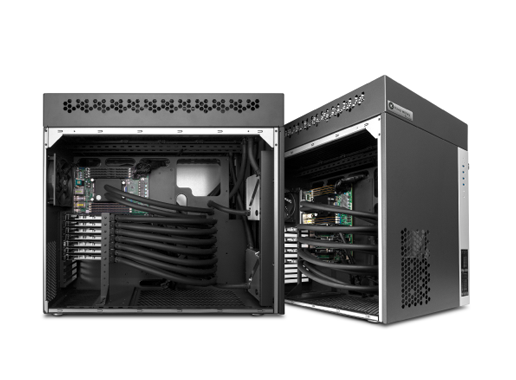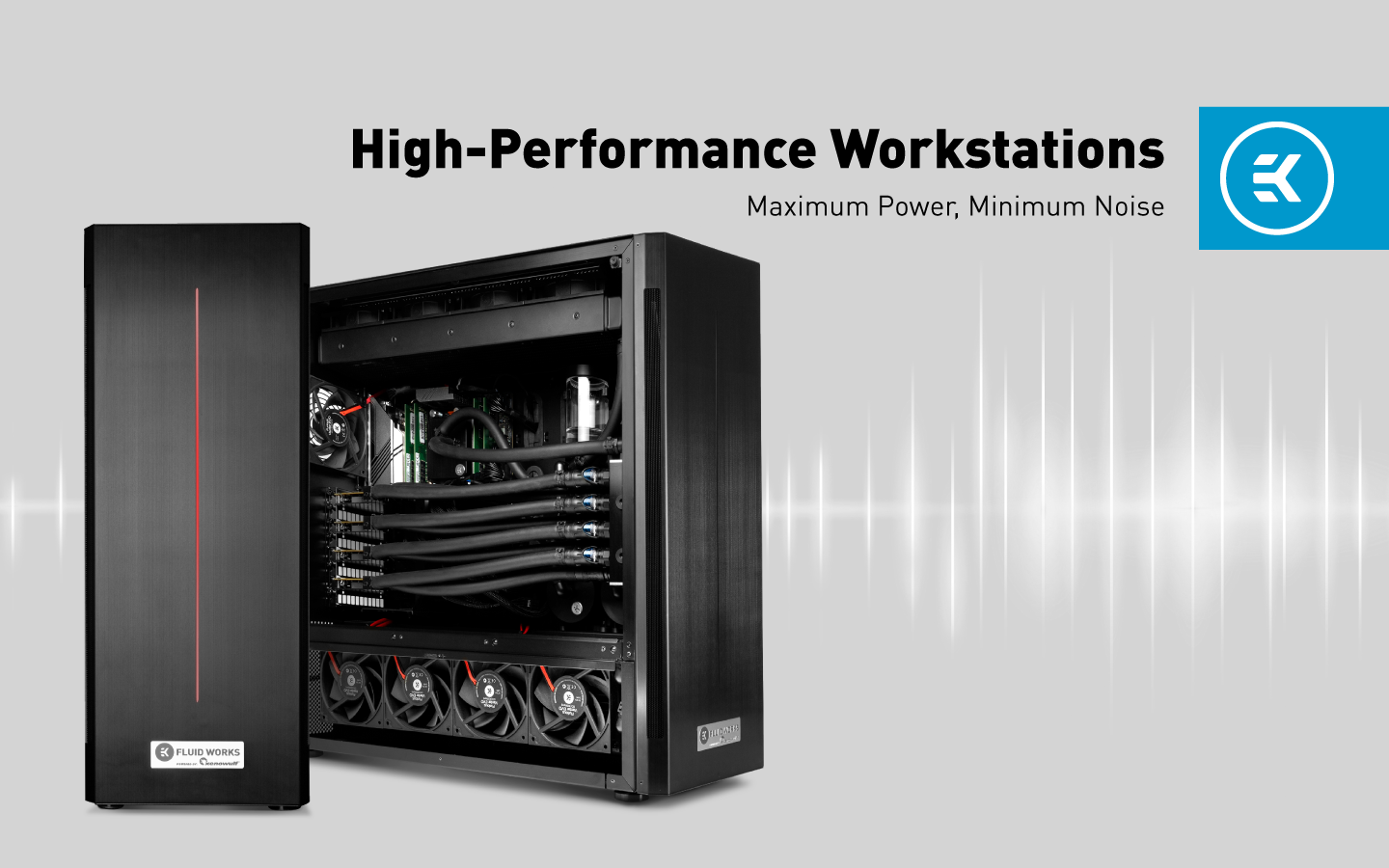
High-Performance Workstations: Maximum Power, Minimum Noise
7/29/2022 1:10 PM
Few things are more annoying than constant noise pollution that hinders one’s workflow or overall peace of mind. Be it the loud next-door neighbor or an overheating computer whining away like it wants to take off from your desk. Air-cooled systems, although easy to work on and maintain, can produce highly obnoxious noise levels. Liquid cooling, on the other hand, due to all the benefits it brings, can handle even higher thermal loads while being near silent under load.
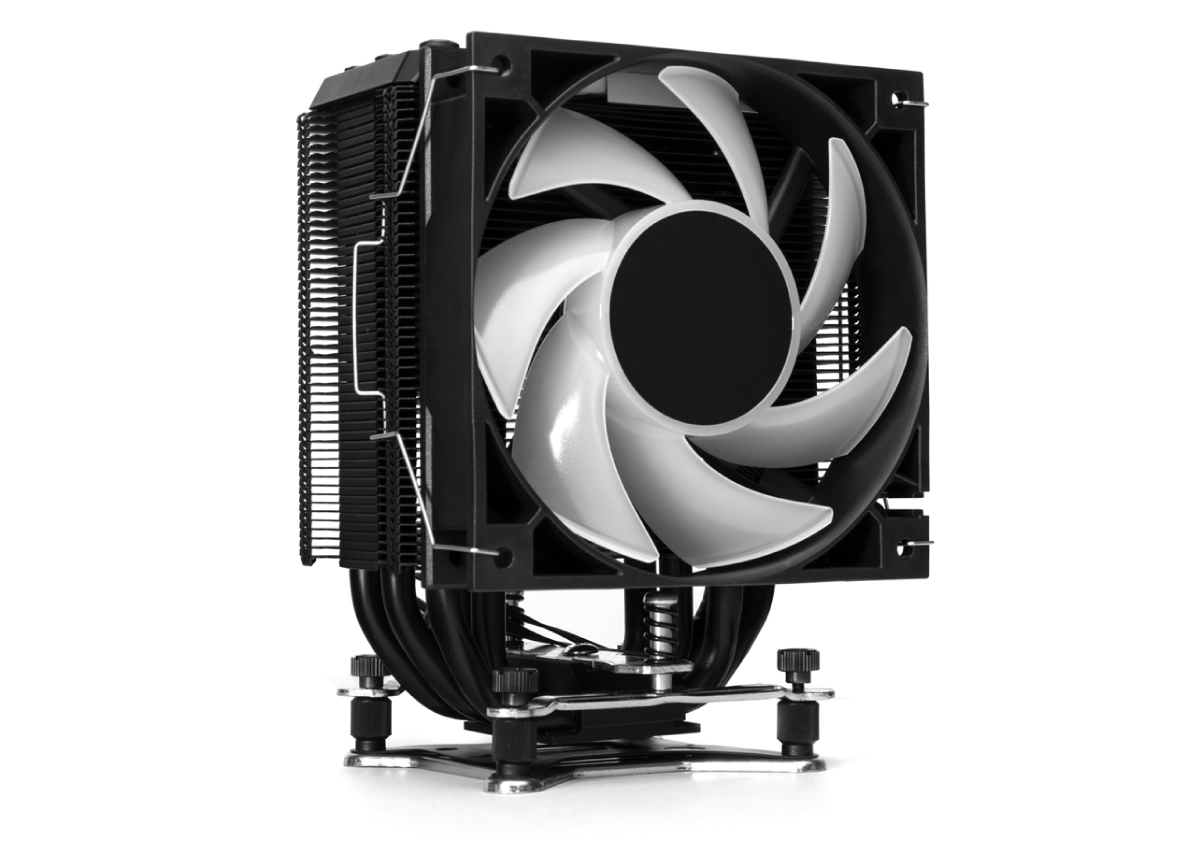
Understanding PC and Professional Workstation Noise Pollution
Consumer-level hardware often relies on aftermarket fan heatsinks for CPUs and GPUs to reduce noise while still offering a good performance. However, most professional-grade hardware, like the NVIDIA A6000 and similar GPUs, suffer from loud squirrel cage blower fans that can spin at 10.000+ RPMs to keep the core temperature at acceptable levels under load. Not to mention that some passive heatsinks require the utilization of high-RPM 80-90mm fans in a special chassis to operate properly.
There usually isn’t any aftermarket solution available to combat this noise pollution, aside from water-cooling solutions.
Such high noise levels are usually relegated to some server rooms and data centers. Still, when you need on-premise workstations equipped with powerful hardware, there isn’t another option other than living with background noise.
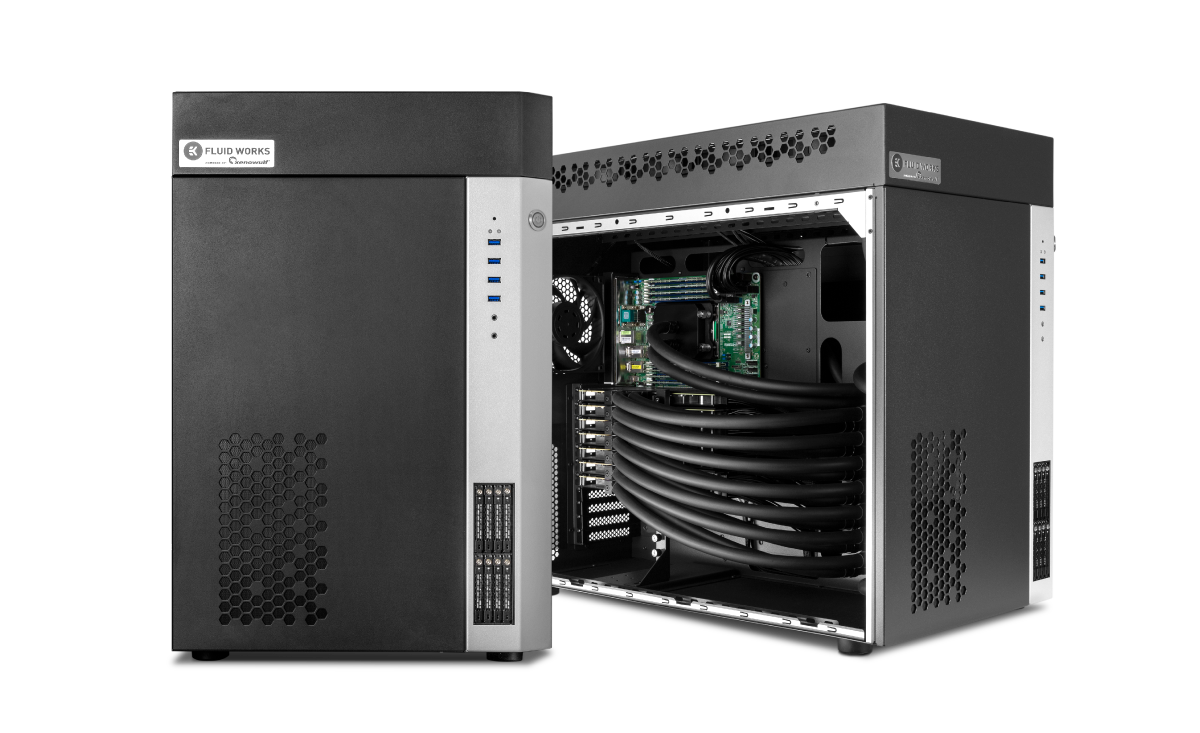
Ways to Mitigate the Noise Pollution
There are numerous methods, with varying levels of effectiveness, that can be used to mitigate or reduce the noise pollution of a personal computer or workstation. You can use noise-canceling headphones, put up some barriers with noise-absorbing foam between you and the machine, and so on.
Or, you can improve the cooling solution.
We at EK chose this last one for our Fluid Works Workstations, and it has proven to be quite effective at reducing the noise output of some very powerful configurations. You can learn more about the other benefits of liquid cooling on our “Why Liquid Cooling Page.”
The Most Observable Benefit of Liquid Cooling
The first thing that professional customers notice with custom liquid-cooling loops is how quiet their computers have become. The noise reduction can be so dramatic that it alone boosts your productivity even before considering the increased performance that comes with lower core component temperatures.
We wanted to put our EK Fluid Works workstations to the test and hired a third-party noise testing laboratory Hidria to run a standardized battery of noise tests and analyses. We put together two almost identical workstations for this testing process, one air-cooled and the other packing our EK water-cooling solutions.
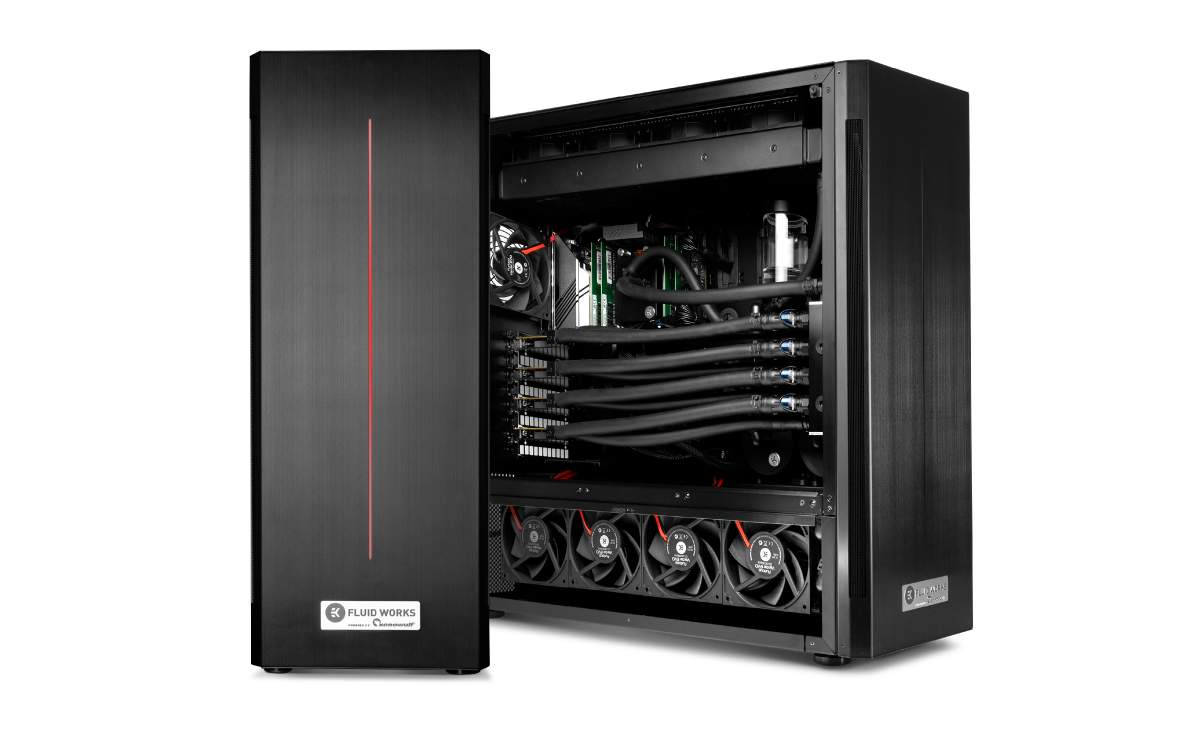
The liquid-cooled EK Fluid Works Compute Series X5000 featured an AMD Threadripper 3960X, 64GB DDR4 3200MHz, ASRock TRX40 Creator, and 4 x Nvidia Quadro RTX 6000, among other components. The air-cooled system was similarly specced with the factory air cooler for the GPU, Noctua air cooler for the CPU, and EK Vardar 120mm fans for case ventilation. Noise testing was performed according to ISO13347 standard in the Hidria acoustics testing laboratory
Results?
They observed a 10dB noise output reduction in favor of the liquid-cooled system after a prolonged heavy load on both machines. This can be translated into a 2X reduction in perceivable noise, plus the frequency of the sound waves emitted by the liquid-cooled system was far more pleasant and less “whiny” to the observer. Both machines idled at about 45dB.

Conclusion
The reduced noise output and subsequent noise pollution resulting from upgraded liquid cooling are invaluable for achieving a comfortable work environment in the lab, corporate, or home office. Do not hesitate to check out our EKFG workstations. They’ll reduce the noise while increasing performance and your overall productivity.







